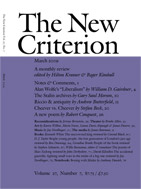[Broken link on CPSC surveillance program fixed now.]
- The internet is a-hum with reactions to a proposal by West Virginia state representative Jeff Eldridge (D-Big Ugly) to ban Barbie dolls “and other similar dolls that promote or influence girls to place an undue importance on physical beauty to the detriment of their intellectual and emotional development.” That idea is predictably going nowhere (at least in West Virginia: Montpelier, Vt. is said to have voted a Barbie ban*), but Eldridge can perhaps take consolation in that CPSIA has already (with virtually no media taking note of the fact) banned the sale of vast numbers of vintage Barbies that pose equal dangers of symbolic or psychological impairment, if not of actual physical dangers. This 1999 New York Times piece describes how Mattel was “beginning an effort to eliminate” the use of polyvinyl chloride (PVC) compounds in the dolls, and that environmental activist groups contended that PVC often included lead as well as (less surprisingly) the plastic softeners phthalates, some but not all of which are banned by the law.
 As Denise Van Patten noted in an About.com write-up in January, it is not clear what old dolls are still going to be lawful to sell, distribute or give away under CPSIA, if they cannot be fit into the “adult collectible” exception that covers items so expensive they will be kept out of children’s hands. Soft plastic is only the beginning of the problem. Most older dolls have paint as a component — often only in the rendering of the eyes, but that’s enough to count as a resale red flag under the CPSC’s Feb. 9 guidelines. Hair and dyed fabric, both of unknown composition? Buttons or snaps in the garment, or worse yet, rhinestones? About the only such plaything a thrift shop would not advised to discard under the guidelines would be an unpainted and unvarnished rigid humanoid figurine of raw wood or cast aluminum. If your child does find one of those on a thrift store shelf, she’s welcome to cuddle it all she pleases.
As Denise Van Patten noted in an About.com write-up in January, it is not clear what old dolls are still going to be lawful to sell, distribute or give away under CPSIA, if they cannot be fit into the “adult collectible” exception that covers items so expensive they will be kept out of children’s hands. Soft plastic is only the beginning of the problem. Most older dolls have paint as a component — often only in the rendering of the eyes, but that’s enough to count as a resale red flag under the CPSC’s Feb. 9 guidelines. Hair and dyed fabric, both of unknown composition? Buttons or snaps in the garment, or worse yet, rhinestones? About the only such plaything a thrift shop would not advised to discard under the guidelines would be an unpainted and unvarnished rigid humanoid figurine of raw wood or cast aluminum. If your child does find one of those on a thrift store shelf, she’s welcome to cuddle it all she pleases. - Carol Baicker McKee is a children’s book author and illustrator who commented eloquently (more) on one of our earlier posts about books. Now she has a great post explaining why, although she “never used to think of myself as an activist,” she’s thrown herself into the fight to change this law. As she points out, some things changed, but other things didn’t change, when the CPSC announced a short safe list of presumptively lawful material for children’s products along with a one-year stay on many testing requirements (but not on the banning of goods that flunk the thresholds). She explains why “the stays provide only the illusion of relief,” and that “when the stay ends a year from now, the destructive testing provisions will still go into effect for all children’s products except the small percentage that have been given a reprieve – the costs of that testing will force the remaining small businesses that have limped along this year into oblivion (and the [requirement for] destructive testing will obviously signal the end of one of a kind products).” Read the whole thing.
- In a classic 1850 pamphlet, Frederic Bastiat writes of “what is seen, and what is not seen” when people recommend government solution to a problem. Deputy Headmistress writes of “what Congress didn’t see“. More: Patrick Stephens on a similar theme last month.
- A Georgia newspaper quotes CPSC spokeswoman Arlene Flecha as saying that “her agency will have inspectors make unannounced visits to stores throughout the country and will randomly conduct tests on products.” And if you’re wondering about the CPSC “Internet surveillance project”, in which agents of the commission pose as consumers in order to
trapdetect persons selling forbidden goods on eBay or Craigslist, you can find out more about that here (link fixed now). - At the Heritage Foundation’s InsiderOnline blog, Alex Adrianson has a detail-filled though not lengthy post that would make a good short introduction to the subject to send to (say) a lawmaker.
- Allison Loudermilk at the How Stuff Works blogs takes a look at the law’s heavy impact on thrift stores (“the selection at your local thrift store just got a whole lot slimmer”), while the PTA Thrift Shop of Carrboro, N.C. regrets to inform its customers that it’s out of kids’ resale entirely due to the law; things are only a little better in Salem, Ore. Manager Lisa Sonnek of the York, Nebraska Goodwill has pulled all the children’s clothing, toys, furniture, and pre-1985 books, in accord with policy from above, but has put aside “some clean children’s clothing, in anticipation of the policy being modified in the near future”. Dunno – that might depend on Henry Waxman’s heart melting or something.
*Although numerous online sources report as fact a Montpelier Barbie “ban”, commenter Barb says it’s far from clear that the reports have much of a factual basis.

 in arms about” changing the law, and has kind words for a certain website that is “the single best place to track all its devastation”. At The New Criterion, Roger Kimball finds that the
in arms about” changing the law, and has kind words for a certain website that is “the single best place to track all its devastation”. At The New Criterion, Roger Kimball finds that the  government does stupid things sometimes without thinking”), and, slightly less recent,
government does stupid things sometimes without thinking”), and, slightly less recent,